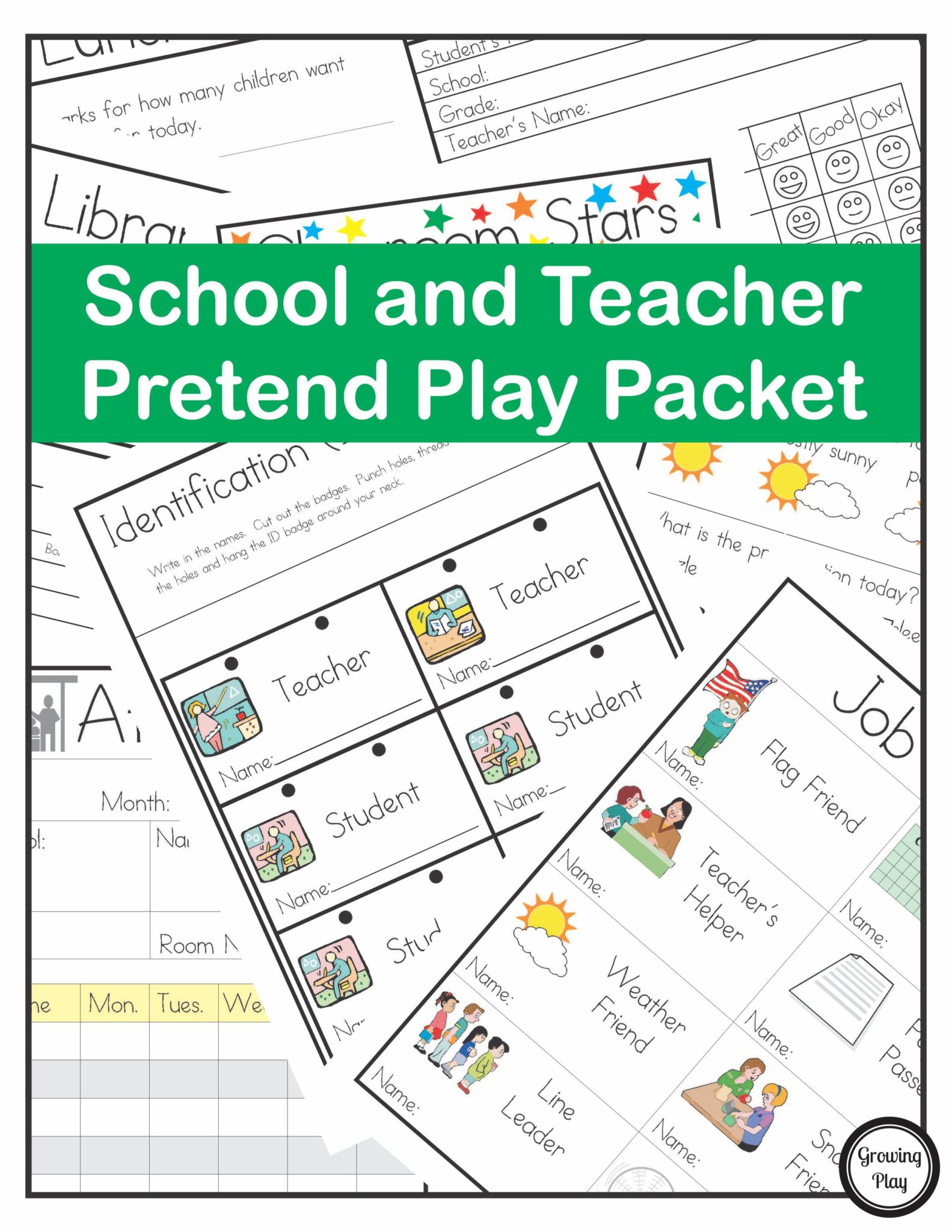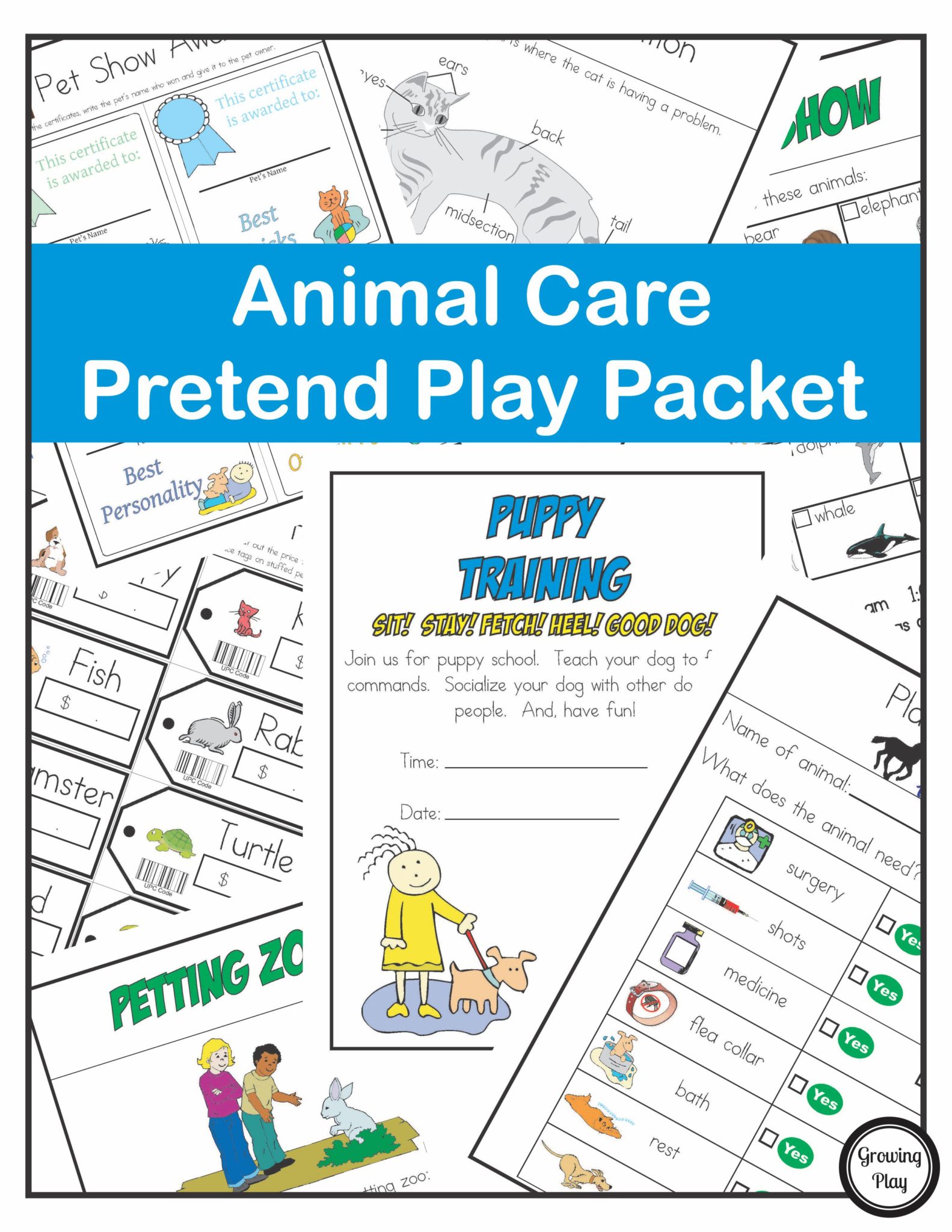Benefits of Pretend Play
Have you ever watched children play pretend? Perhaps you have joined in the fun and started role playing yourself. Are you aware of the benefits of pretend play? Do you ever wonder why your child loves to play imaginary games?

Pretend play is a great way for children to develop their social skills, problem solving abilities, and creative thinking. It’s also a lot of fun!
Pretend Play and Childhood
Pretend play is the type of activity most often associated with childhood. It’s when kids imagine their toys to be living creatures, build elaborate houses out of blocks, and act out make-believe scenarios with dolls.
Pretend play is so common in young children that it’s almost considered a rite of passage or something every child will do at some point. But what does this imaginative behavior mean for cognitive development? Is pretend play only fun and games, or are there other benefits to allowing a child to use his or her imagination?
“Children who engage in dramatic or pretend play at a young age are not only more creative, but they display advanced socio-emotional, cognitive and language development as well,” says Michele Borba, Ed.D., author of The Big Book of Parenting Solutions . “Kids who have a rich fantasy life are better able to cope with anxiety and stress.”
The key to learning in early childhood is curiosity. As children learn, they notice seemingly insignificant details about their environment and the people who surround them. They want to know what makes things tick; they are natural thinkers, explorers, and experimenters who can’t help but ask “why” or “how” every time they discover something new. Through the years, pretend play is one of the key stepping stones that helps children learn about the world in an interactive way.
10 Benefits of Pretend Play
#1) Pretend Play Helps Children Develop Intelligence
Young children learn best through hands-on experiences that let them tinker with objects and test out their curiosity about how things work or what happens when they do this or that. The benefits of dramatic play, which encompasses pretend play, is the ideal kind of learning experience for children because it encourages them to use their imagination and develop healthy cognitive skills: logic, creativity, critical thinking, problem-solving, reasoning and communication.
Pretend play helps develop young children’s cognitive skills in ways they would never be able to do in their textbooks or during art class at school. As they work through problems and overcome challenges as they play out different scenarios, they learn to problem-solve, use logic and reason, communicate and think critically.
#2) Pretend Play Promotes Social Development
Pretend play helps develop a child’s social-emotional development in many ways. As children act out different roles and characters, they learn how to get along with others who may be different from themselves.
This type of play can teach social skills such as taking turns, sharing toys or resolving conflicts without the use of aggression. Imaginary play can also help children learn how to solve problems in new and creative ways, which benefits their social adjustment later in life.
#3) Pretend Play Improves Communication Skills and Language Development
Through pretend play, children learn how to use language for effective communication as they take on roles that require certain responses and gestures.
For example, pretending to have a conversation with a stuffed animal or another child offers preschoolers an opportunity to learn how get along well with others.
Children use language freely during pretend play and make the words they’re using part of their overall imaginative experience. Because they’re deeply engaged in their pretend activities, they often express themselves with confidence and enthusiasm that enhances their verbal communication abilities.
They learn how to listen, share their ideas, interact with each other and solve problems as they talk through scenarios leading up to or following pretend play activities.
#4) Pretend Play Builds Creative Thinking
Pretend play not only enhances imaginative thinking but it also helps young children build creative thinking.
Children who are allowed to engage in pretend play have an easier time learning new concepts because they already possess so many ideas about things that don’t exist or aren’t part of their day-to-day lives. For example, if a child pretends to be a firefighter and douses pretend flames as he plays out that role, he’s making connections between what it means to be a firefighter and how firefighters use water to put out fires. In the process of playacting all the possibilities that go along with the firefighter role, he’s exercising his imagination and strengthening his mental capacity to think creatively.
#5) Pretend Play Promotes Individuality
Children who play pretend enthusiastically are more likely to develop their own unique views of the world than those who choose to be passive participants. When children act out different roles and characters, they learn about themselves at the same time because they learn how others interact with them.
#6) Pretend Play Leads to Better Listening Skills
A child who’s able to listen well, follow directions and tune in effectively when someone speaks is more likely engaged in pretend play than one who prefers to engage in self-stimulating activities.
#7) Pretend Play Strengthens Problem Solving Skills
Pretending to be a firefighter, doctor, veterinarian, or teacher enables children to apply their problem solving skills from the perspective of another person. As they act out a specific role with other children, they learn how to think through problems and situations that involve other people or animals.
#8) Pretend Play Helps Preschool Children Master Fine Motor Skills
Children who engage in pretend play with dolls, puppets or dress-up clothes strengthen their fine motor skills as they move the objects around and manipulate them to act out different roles.
#9) Pretend Play Encourages Empathy for Others
Children who act out different roles in a pretend setting may use props and get into character. As they imagine themselves as a firefighter, teacher, doctor or parent, they learn how others might feel and adjust their behavior accordingly.
For instance, a child who pretends to be a doctor knows that if he was in his hospital and someone was sick, he would need to think about what to do about it and how that person was feeling. As children play out different roles, they learn to empathize with others and adjust their responses accordingly.
#10) Pretend Play Encourages A Sense of Wonder and Imagination
Pretend play gives children the chance to imagine alternate worlds and realities in which anything is possible. The benefits of imaginative play are numerous: encourages kids’ creativity, boosts their sense of wonder and instills a lifelong love of literature and creative endeavors. Pretending also fosters self-confidence and builds mental resilience, as children are able to act out what they feel but must keep inside. This helps kids understand the difference between reality and fantasy, which can lead to clearer thinking in the real world.
Pretend play is like an alternate universe for kids to shape as they wish. It’s their time to create and let loose with wild scenarios, characters and imaginary friends. While the feeling of being in charge can be all-consuming at times, it teaches children agency — that they’re capable of making things happen.
Summary on the Benefits of Pretend Play
Pretend play not only allows children to use their imagination and creativity, it helps them develop social and motor skills as well.
Pretending strengthens problem-solving skills, encourages a sense of wonder, boosts listening abilities and fosters empathy for others.
The next time your children start playing pretend, step back and let them learn!
Reference: Borba, M. (2009). The big book of parenting solutions: 101 answers to your everyday challenges and wildest worries (Vol. 1). John Wiley & Sons.
This is a affiliate link below.






